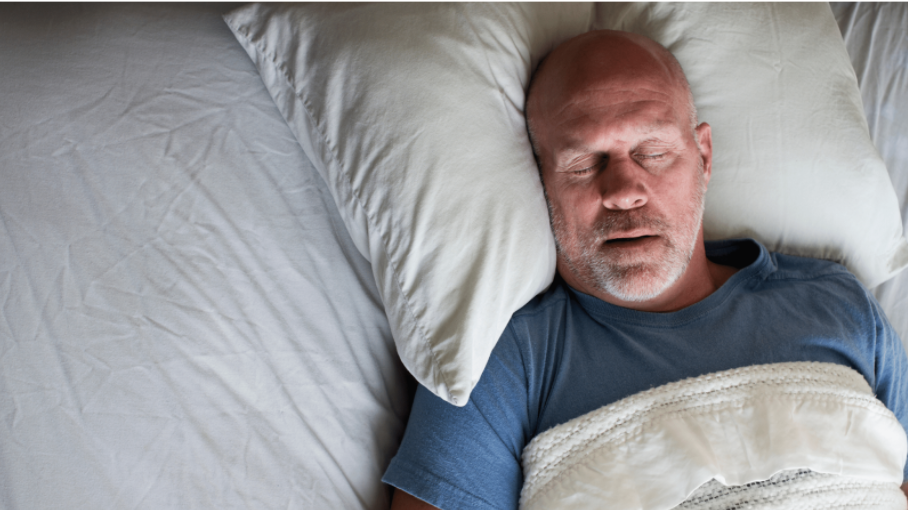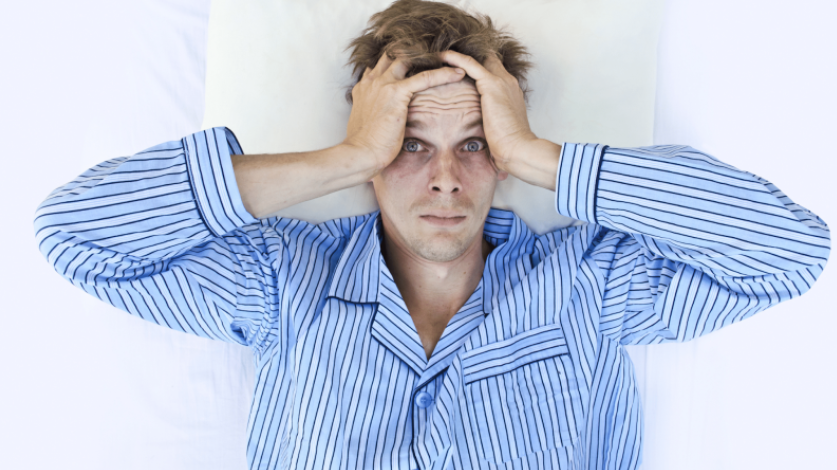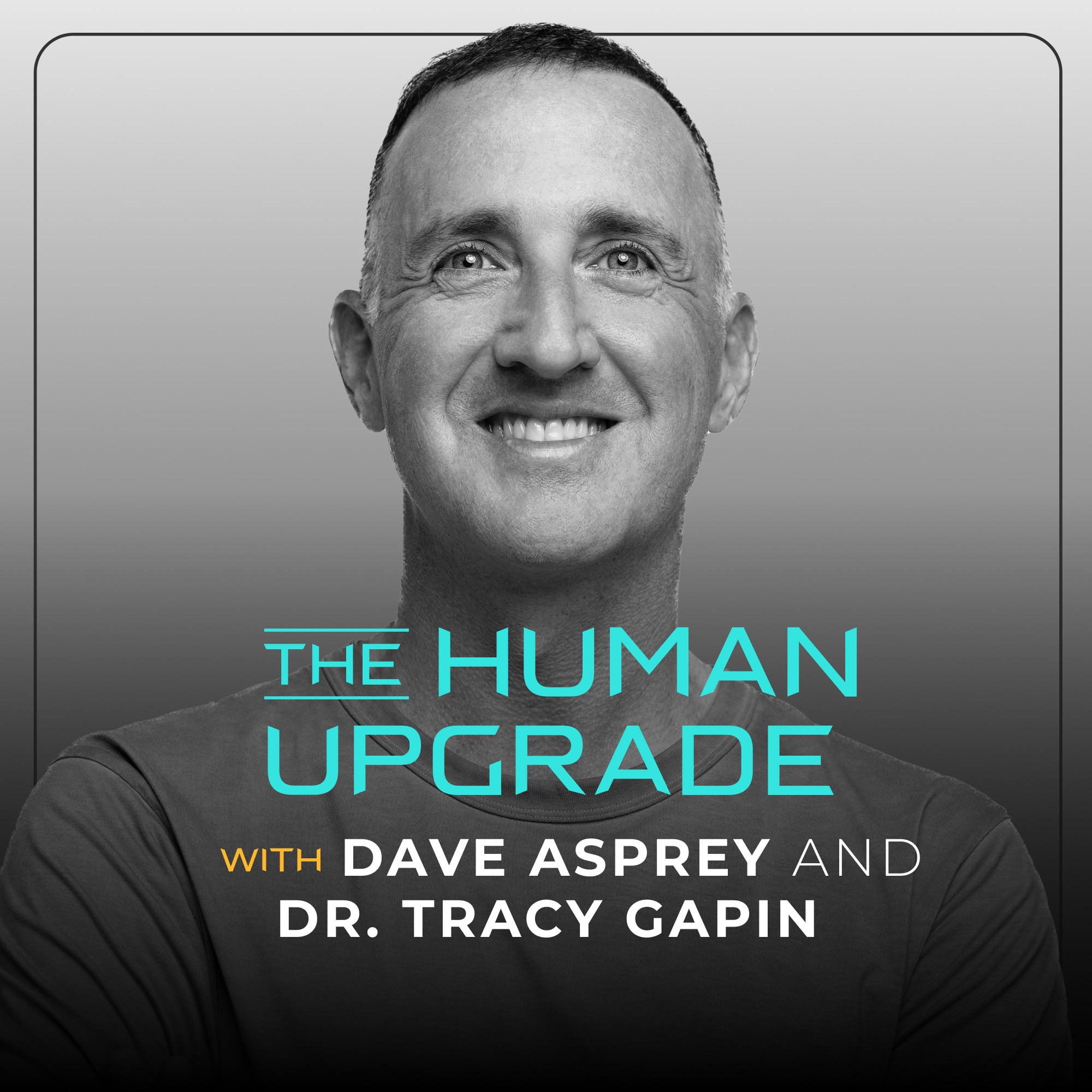
Can Sleep Tip The Scales In Your Favor?
“Sleep is for those who are broke.”
“Sleep is the cousin of death.”
“Late nights. Early mornings.”
The hustle culture is in full swing and shows no signs of slowing down. We have to maximize our time earning, growing businesses, running side hustles, and juggling social and family life. So something’s got to give, and so far, it’s been sleep.
According to the Sleep Foundation, 35% of Americans get less than the recommended minimum of 7 hours of sleep. This statistic is especially true for men, as one in four struggle with sleep due to issues like Obstructive Sleep Apnea.
A lack of sleep is a common concern for the men I treat. It affects their energy levels, cognitive function, and even sexual health. Yet many are unaware of the impact it has on their weight. As sleep time steadily decreases, the amount of overweight or obese men have increased, and doctors and scientists alike have taken notice.
If you’ve been striving to lose weight and not seeing the results, you may need to do less exercising and more sleeping.
Let’s explore the ways sleep can affect your weight and what you can do about it.
Why your body needs sleep
We spend 1/3 of our lives asleep. To date, there’s not much we can tell about the real reason why we need sleep. However, there are some obvious benefits uncovered by years of research.
1. We conserve and restore our energy stores.
A male lion sleeps and rests for up to 20 hours a day. Still, it’s considered the king of the jungle. Mammals sleep as a form of energy conservation. When food is scarce, sleep is seen as the body’s way to minimize wastage. During sleep, the heart rate, metabolism, digestive systems, and caloric needs reduce significantly. It would also make sense for it to happen at night since we would need more energy to stay warm if we were active around that time.
Of course, with the availability of food, the average human rarely uses sleep for the purposes of conserving our food stores. However, we do need it to rejuvenate and restore our energy. Our bodies optimize our ability to burn energy during sleep, giving us the energy we need for the next day.
2. Sleep is your body’s self-cleaning system.
During sleep, you go through different stages, namely:
- REM sleep
- Non-REM (Rapid Eye Movement) stage one and two (Light Sleep)
- Non-REM stage three & four (Deep Sleep)
At different stages of non-REM sleep, your brain shuts down and the resources normally used there are reallocated to your organs, muscles, and tissue to help with cell repair, new tissue growth, and flush out metabolic waste. Deep sleep is by far the most crucial stage of sleep.
Your brain also gets a software upgrade, storing the day’s information, getting rid of bugs, and rewiring itself as needed. It removes dangerous proteins, such as beta-amyloid, which is responsible for diseases like Alzheimer’s and dementia.
3. Well, we can die without it.
The Guinness Book Of World Records does not acknowledge any attempt to break the record of the longest time spent awake by a human. Why? Because it’s a dangerous practice. After losing several days of sleep, the immune system, nervous system, and brain begin to decline.
For instance, Randy Gardner, the current record holder at 11 days and 24 minutes, suffered from symptoms similar to severe dementia. He later stated in an interview that he regrets the experiment, and it impacts his ability to sleep today, almost 50 years later.
Randy’s case happened in a carefully controlled experiment. If the layman decides to go without sleep for just a few days, a similar decline in your faculties will happen. Symptoms like memory loss, fatigue, and psychosis can happen. Over time, organ failure and even death are possible.
How insufficient sleep affects your weight loss goals

So how does sleep affect your weight? Scientists have not been able to pinpoint the exact reasons why this happens, but there are likely a combination of physical, psychological, and social factors that impact your weight. Here are six reasons why this may occur:
1. Sleep affects your metabolism
Metabolism is a general term for the body’s ability to convert food into energy. This energy is what we use to complete essential functions like breathing to more advanced tasks like high-intensity exercise. The better our metabolism, the easier it is for us to lose weight and keep it off.
Our metabolism naturally improves with good quality sleep and slows down dramatically with sleep deprivation. Your ability to sense glucose and utilize insulin, the hormone that’s crucial for your metabolism, becomes compromised. As a result, you’re more likely to store glucose as fat, even with changes in diet, and develop type 2 diabetes.
2. Your appetite spikes
Our bodies depend on the hormones ghrelin and leptin to determine when we’re hungry and when we’re satisfied. Studies have shown that a lack of sleep significantly impacts the production of these hormones as well as your body’s sensitivity to these hormones. Ghrelin increases at least 15%, while leptin decreases as well. That means your appetite spikes, and you feel less satisfied after eating. A reduced number of hours and quality of sleep can make weight loss harder and even cause long-term weight gain.
3. More time for bad choices
Nothing Good Happens After 2 AM is a rule we can all live by. The longer you stay up, the more chances you have to consume empty calories. People who go to sleep later are more likely to drink alcohol, street foods, or snacks that go straight to their midsections.
Your dopamine and stress levels are higher based on your activities, which can help you reach for salty, sweet, or fatty foods. I’m not saying you can’t have the occasional cheat meal or night out. When you’re awake at late hours, it’s more likely this can go from the exception to the norm.
4. You’re burning more energy.
If you’re up past a suitable bedtime, you’re probably investing that time doing something else. For instance, you may be working on a project, taking on a second job, or working on your new venture. If you’re not ‘being productive,’ you could be playing video games, thinking about the dishes you left in the sink, or ‘Netflix and chilling.’
Whatever the task, it requires energy. Expending that energy means you’re more likely to reach for something to eat that involves carbs or fats. This behavior increases your daily caloric intake.
5. You’ll have less energy during the day.
If you’re not sleeping enough, you’re not allowing your body to be primed for the next day. As a result, you’ll be operating on sleep debt, meaning your workouts and general activity lose intensity. Less energy means you are more likely to skip workouts, sleep during the day, and reach for fast foods.
6. Watch out for sleep apnea.
Sleep apnea is a common condition where the airways are blocked or interrupted during sleep. This causes breathing to intermittently stop, which can lead to other health issues including high blood pressure and low testosterone. Excess fat or altered anatomy can cause the airways to collapse during sleep. Sleep apnea leads to reduced sleep, causing a cycle of weight gain.
Can oversleeping affect your weight too?
If I’ve convinced you by now to up your sleep time, it comes with a caveat. Like anything good for you, too much of a good thing can be a bad thing. Studies also show that too much sleep can have the same effect as insufficient sleep. In a group of 276 adults, those sleeping 9 hours and above experienced similar weight gain as those with less than 6 hours. Oversleeping further decreases metabolic function and increases inflammation, weight gain, and the chances of diabetes.
How to sleep away those extra pounds
If you want to not only lose weight but improve your energy and overall health, you need a holistic approach to the issue. Conventional advice focuses on diet and exercise, which is essential, but high-quality sleep could be the ace-in-the-hole you’ve been missing.
Most men need between 7 to 9 hours of uninterrupted sleep for optimal health. Here are some ways you can improve your sleep, and along with the right lifestyle choices, your weight.
1. Keep a steady sleep schedule.
One of the best ways to improve your sleep is to have a consistent sleep schedule. This sleep schedule will involve resetting your circadian rhythm. Your circadian rhythm is your body’s internal clock. To keep things on track, you’ll want to make sure to go to sleep at the same time every night, if possible.
At first, you will find it difficult to go to sleep, or you will wake up earlier. You’ll have to discipline yourself to stop working or go back to bed if you wake up early. In time, your body will get the message, and you’ll have longer, higher-quality sleep.
2. Set the mood
If getting to sleep and staying asleep is an issue, it could be down to your environment. Try setting up a space conducive to a good night’s sleep. Get the room temperature right (65 degrees Fahrenheit, according to experts).
Use blackout curtains, comfy sheets, white noise, and wear loose, breathable pajamas. A diffuser with sleep-inducing essential oils like bergamot or chamomile can also help your body unwind, priming you for sleep.
3. Reduce artificial light

For our circadian rhythm to work, our brain depends on light from the sun. These light beams send signals to the brain via the retina. Unfortunately, we can’t tell between artificial light (especially the blue light from our screens) and natural light.
So the longer we stay on our devices (TV, laptops, cellphones, etc.), the more our brains will think it’s daytime. The result will be shorter sleep times and poor sleep quality. It is recommended that you turn off your devices at least 30 minutes before heading to bed. If possible, keep your phone away from your bed to reduce the chances of mindless scrolling.
4. Measure your sleep
It’s easy to think you’re getting enough sleep. But data doesn’t lie! When you actually see the numbers, it can make a huge difference in how you approach your sleep habits. I’m a huge advocate of using wearable tech and biometric data devices to track your sleep.
These devices can track your REM and non-REM sleep, heart rate, and even body temperature. With that information, you can make simple changes to optimize your sleep. If you’re concerned about your weight, these devices help track your activity levels, oxygen levels, calories burned, and much more.
5. Avoid smoking and alcohol before bed.
A study of 785 African Americans over 14 years revealed that smoking and alcohol consumption before bed significantly reduced sleep quality. When done an average of 4 hours before bed, sleep time and sleep quality decreased significantly. Smoking, in particular, reduced sleep by at least 40 minutes. So quit smoking entirely (for many other reasons as well!), and limit alcohol intake, especially before bedtime.
6. Try a melatonin or magnesium supplement.
When it’s dark, our brain releases a hormone called melatonin. This hormone primes us for sleep and is an integral part of the circadian rhythm. Genetics can determine your body’s ability to produce melatonin and also dictates your body’s response to it.
Supplementing with magnesium may also help improve your sleep. Studies show a connection between magnesium levels and sleep quality and suggest that magnesium impacts the neurotransmitters that regulate sleep. Magnesium is involved in over 300 different processes in the body. In a study of almost 1500 participants, magnesium supplementation both increased the sleep time of short sleepers and decreased the sleep time of long sleepers.
Don’t lose sleep over your weight.
Sleep is the body’s way of flushing out the gunk, resetting, and preparing for another day. Unfortunately, sleep deprivation is linked to a host of health issues. Whether directly or indirectly, it can also hurt your weight. Ironically, the stress of being overweight can keep you up at night, reducing your ability to lose that weight.
The best athletes in the world consider sleep a priority. With all that’s happening in his life, a 44-year old Tom Brady still makes sure to get up to 9 hours of sleep. Why can’t you?
If you’re concerned that you’re packing on some unwanted pounds, it helps to see a doctor for a safe, healthy game plan. Besides diet, exercise, and supplementation, that game plan must involve strategies to improve your sleep. We understand that being a healthy man is more than avoiding sickness. It’s having the right plan in place, so you feel terrific. Schedule a call or consultation with us so we can help you maximize your health.






